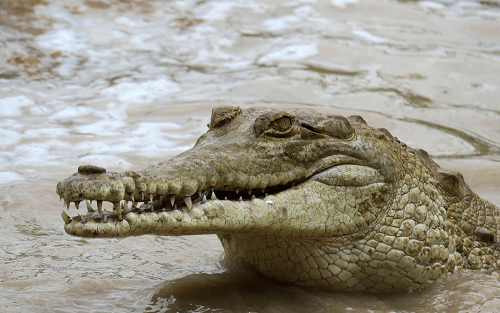Wild animals such as chigüiros, iguanas, ducks and even snakes are used as food in the Orinoquia, a behavior that is part of the hunting culture and usual diet in several remote regions of the country, but because they are native fauna – of which their health, diet or hygiene is not controlled – it represents a risk for food security, in addition to alterations in the ecosystem. That is why it is essential to generate information that strengthens the epidemiological surveillance strategies of the region, and for this a group of biologists investigates the viruses and parasites of these species that can make humans sick.
Researchers from the National University of Colombia (UNAL) and the International University of the American Tropics (Unitropic) in Yopal (Casanare), are developing a project to identify zoonotic agents (microorganisms that can be transmitted from animals to humans and make them sick) present in “mountain meat”, as these foods are popularly known.
The main objective of the work, led by teachers Lady Correa and Óscar Rodríguez, from Unitropic, is to identify viruses and parasites in samples of wild animals consumed by the community, collected in rural areas of Yopal and Paz de Ariporo. Among the animals hunted, and from which samples have been taken, are mammals such as chigüiros, armadillos and opossums or “chuchas”; reptiles such as iguanas, turtles, boa güio and babillas; and wild birds such as herons and hairless ducks.
It seeks to identify viruses and parasites
Professor Nubia Matta, leader of the Genetic Characterization and Immunology Research Group at UNAL, points out that “we seek to identify parasites and viruses as dangerous to humans as influenza, bacteria such as Leptospira and blood parasites such as Plasmodium, which are commonly carried by wild birds and mammals; “We want to identify which ones may be causing zoonotic diseases in the region, and what type.”
“After taking blood, cloacal and oropharyngeal swabs (nasal secretions), we analyze them in the laboratory; Although several of these studies take more time than others, in the preliminary findings, in the blood of opossums and chigüiros we found parasites such as trypanosomes, and in iguanas we found parasites associated with malaria,” highlights the expert. These results underscore the need to continue monitoring and understanding health risks associated with dietary practices in the Eastern Plains.
The project not only seeks to identify the risks associated with handling wildlife, but also involves the community and university students in sampling and analysis, thus contributing to local scientific development and strengthening research capabilities in the region.
Professor Matta mentions that “it also seeks to raise awareness among local communities about the health risks associated with hunting, handling and consumption of wild meat, so the first findings shed light for future research and implementation of measures.” preventive in the region; “We also hope that the final results of the study will serve as an educational tool to promote safer and more sustainable food practices in the region.”
Furthermore, collaboration between academic institutions and government entities is essential to guarantee the public health and well-being of rural communities throughout the Orinoquia region.
Crucial approach for public health
In the fight against zoonotic diseases, surveillance and epidemic control emerge as a fundamental pillar for public health. The study of tropical diseases transmitted by insect bites, such as dengue, malaria, chagas, among others, is common, and one of the big warnings is their rapid and high transmission; In this sense, the surveillance of microorganisms has been focused on commonly occurring agents, which is why it is necessary to analyze other agents that can cause zoonoses in humans.
The extensive rural area of Casanare, its great biodiversity, the customs and habits of its inhabitants – such as hunting and animal trafficking – determine the presence of potentially infectious organisms for humans, of which until now there is little information and investigation.
In fact, according to a previous study by the University of La Salle, carried out in Paz de Ariporo, the ticks present on chigüiros can transmit rickettsial diseases to humans, such as interstitial pneumonitis, myopericarditis (heart and blood vessel disorders), skin lesions, lymphocytic meningitis, as well as liver, kidney and gastrointestinal disorders, which supports the importance of studying the risks associated with hunting and handling “bush meat.”
This research was one of the winners of the call of the Ministry of Science, Technology and Innovation (Minciencias) that seeks to promote research, knowledge and development of regional capabilities. It is also financed with resources from the General Royalties System in collaboration with the department of Casanare.
Source: UNAL Communications Orinoquia headquarters
